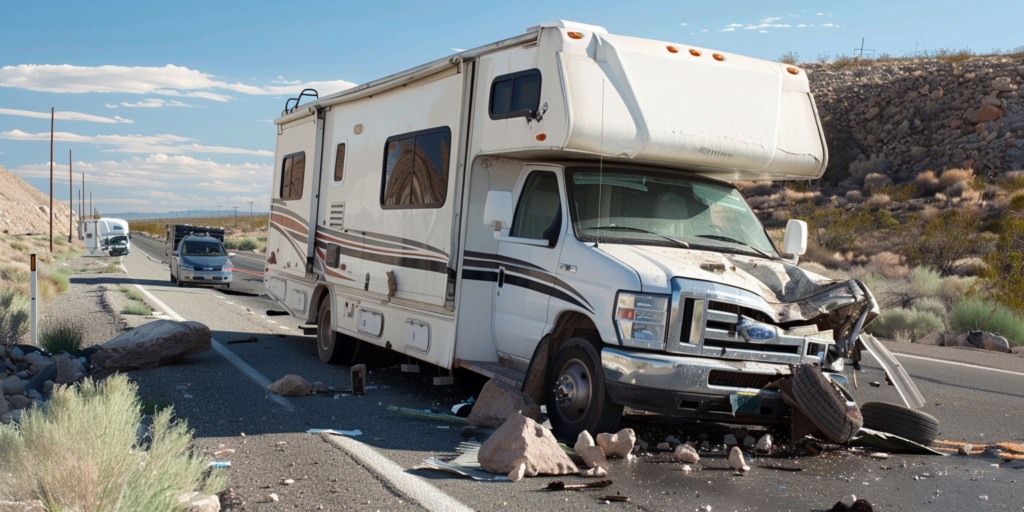Although you may not want to think about it, RV collisions do happen. Whether it’s due to a fault on your part or another driver on the roadway, you’ll need to deal with the unfortunate situation when it arrives. Your best bet is to understand these six steps now so that you can effortlessly react when unfortunate circumstances arise in the future.
1- Contact the Police
First and foremost, you want to contact the police to report the accident. This is a necessity for most insurance companies to provide coverage for the accident. The accident report that will be written up by the responding officer will include vital information, such as the other driver’s vehicle information. Even though the officer may not be required to hand you an accident report at the scene, they will be required to provide you with one within a few short days after the accident.
2- Document the Accident Scene
Nowadays, everyone has a smartphone within reach. Do yourself a favor and take some pictures of the accident scene. More specifically, notate any damages on your vehicle and any other vehicles involved. Snap pictures of any leaking fluid paths, braking marks, and any debris that fell off of any of the vehicles. This can help your insurance company later in the event that there is an issue with determining fault.
3- Let Your Insurance Company Know
Next, you’ll want to contact your insurance company to let them know that you were involved in an accident. They’ll be able to help you understand your insurance coverage, find a repair shop, and take your statement of the events that happened. Depending on the severity of the accident, you may want to contact your attorney before giving a statement to your insurance company.
4- Find a Professional Repair Service
Not all body shops will be capable of repairing your RV. In fact, you’ll likely find that you’ll need to locate a specialized RV repair shop to get the necessary repairs done on your motorhome. You should contact the shop ahead of time and let them know the extent of the damage. They should be capable of doing a repair inventory for your insurance company and give you an estimated completion date.
5- Get the Other Driver’s Information
While the other driver’s information will likely be reported on the accident report, it can be helpful to get your own copy of their information to speed up the processing of your insurance claim. You’ll want to record the other driver’s insurance card, driver’s license, and license plate. This can easily be done by snapping a few pictures with your smartphone.
6- Read Over Your Insurance Policy
After an RV accident, it’s a good idea to read over your insurance policy to determine your coverage limits. You can discover what your deductible will be so that you can financially prepare yourself for the repair process. You can also verify what your maximum coverage limits are for different aspects of the accident so you know exactly how much your insurance company will take care of.




